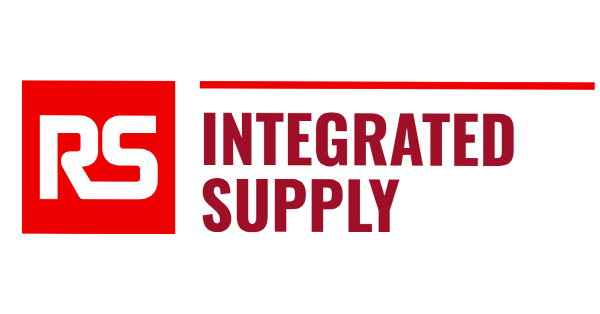The motivations for outsourcing your Maintenance, Repair and Operations (MRO) supply chain can change over time but choose the right provider and you’ll continue to reap the benefits even as your business needs evolve – as this case study of one US food manufacturer demonstrates.
The challenges: then and now
Initially, the client didn’t have the capacity or experience to manage MRO in-house. They were a new company that had taken over an existing manufacturing plant and lacked the infrastructure needed to keep the facilities in good working order, whether that was buyers to order parts or an accounts team to manage the purchasing process. RS Integrated Supply, a global provider of outsourced storeroom management and procurement services, was hired to handle all indirect procurement, including storeroom management, on their behalf.
Thirteen years later, the client’s business has grown enormously yet they’ve chosen to continue outsourcing their MRO supply chain to RS Integrated Supply, whose seven-strong on-site stores team now manages more than $6.4million of spend, 154 vendors and 7,000 orders annually for them.
Not having to manage the indirect procurement process retains advantages for the client. “They didn’t have to hire a whole payables department, an IT department, or anything like that,” says the RS Integrated Supply site manager. “We have it on our side, so that’s saved them a tremendous amount, too.”
Cost saving isn’t the only priority, with uptime a major focus as well. “The plant runs 24/7,” explains the site manager. “They’ll shutdown occasionally to clean everything out as the product builds up and the pipes need to be sanitized, but as a rule they run all day every day.
“When a line goes down, they want it and need it back up quickly, as they can’t make enough of the product, and they don’t want to lose any sales.”
This means negotiating competing demands. “It’s a fine line for every company,” says the site manager. “What do we need to keep the plant running? How much inventory do you want to carry versus the impact of being down for hours or a day? It’s a juggling act between the finance and manufacturing side of the business.”
There’s also the added challenge of perishable foodstuffs being involved. These can quickly spoil, which means even more pressure to avoid downtime. “We endeavor to not be out of a part that can shut a line down,” continues the site manager. “It’s a daily fight to make sure everything’s maintained at the stock levels they need, but that’s our job – to keep them up and running.”
A two-pronged solution
How does the RS Integrated Supply team rise to this challenge? By running two distinct replenishment processes.
“The bulk of the business is the repeat orders, the things we don’t want to run out but are necessary to keep the line operating,” says the site manager. There is an automated system to manage this side of operations alongside a parallel system of special purchase orders. “The special purchase orders are items that we don’t want to stock because they don’t wear out particularly fast,” they add.
To make this approach work, and avoid either shortages or holding too much stock, the RS Integrated Supply team needs to clearly understand both the client’s operations and the MRO supply chain.
“There are some things that have a wait time of months,” says the site manager. “We recommend items to keep in stock based on the lead time and the criticality of that item, although ultimately the client decides what to stock and at what level.”
Lead times aren’t the only influence on ease of availability, particularly for specialist items. “Most things we can source from multiple vendors except for certain technical parts that we get from European suppliers,” notes the site manager. “For those, we have ample stock on hand in case a machine goes down. That determines what’s going to be a stock item versus a special order.”
Generating the right results
The client uses a range of measures to judge the success of this dual approach to indirect procurement. One of the Key Performance Indicators (KPIs), for example, is an annual unit cost saving target of 3% on MRO stock. “Because RS Integrated Supply is so large, we’re able to buy items at a much better price,” says the site manager, referring to the company’s annual MRO spend of nearly $1 billion. “We have an advantage not only in terms of cost but in the amount of vendors we can buy from. We have access to a lot more items and a lot more buying power.”
Another target is annual inventory optimization, which is balancing inventory to meet maintenance requirements without ordering excessive quantities. It involves automated replenishment, with minimum and maximum levels, proper quantities, criticality, lead times, and more. For this client, the goal was $100,000 in annual productivity savings. Since the program’s inception, RS Integrated Supply has exceeded that goal, registering $2 million in combined material and productivity savings. Transactional efficiencies are not included in those savings calculations.
The ability to deliver strong results is, the site manager believes, why the client has retained RS Integrated Supply for so long. “Seeing how well we perform, that’s what’s kept us around since 2010,” they conclude. “I think they saw what we do, how we do it, and how organized it is, and so they’ve stuck with us. They’re seeing great savings and we’re able to stay ahead.” In fact, RS Integrated Supply is in active talks with the client about expanding services into additional sites in North America too.


